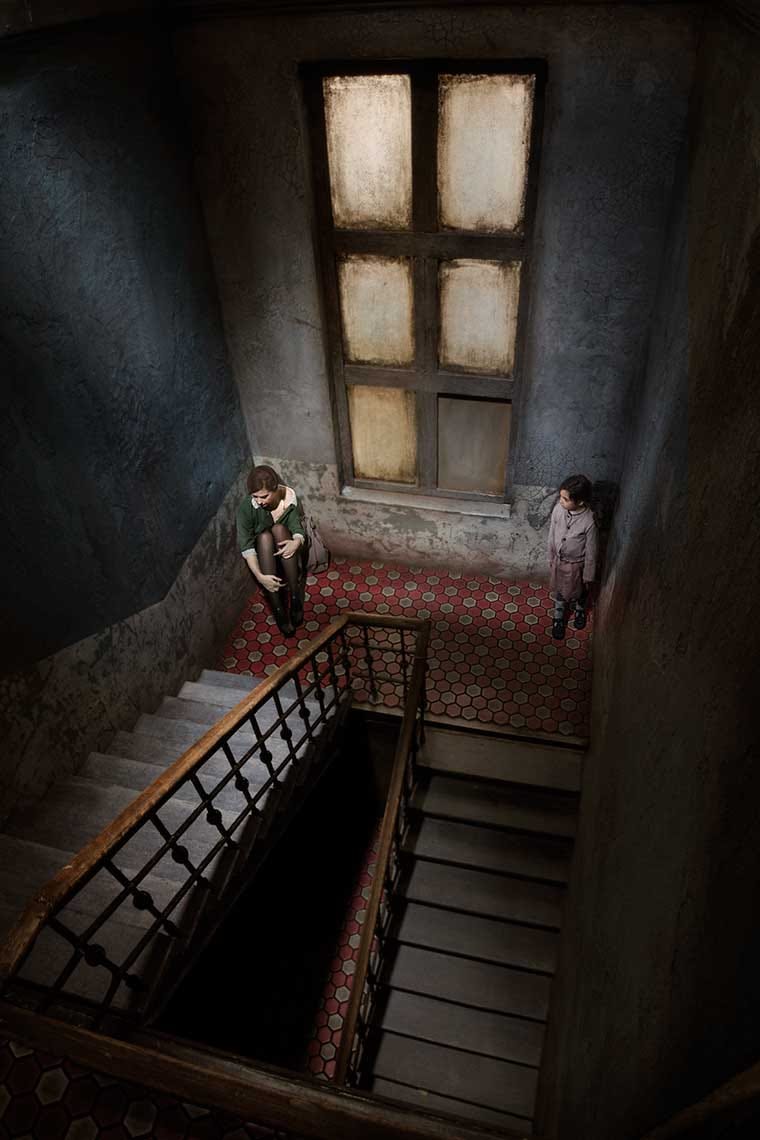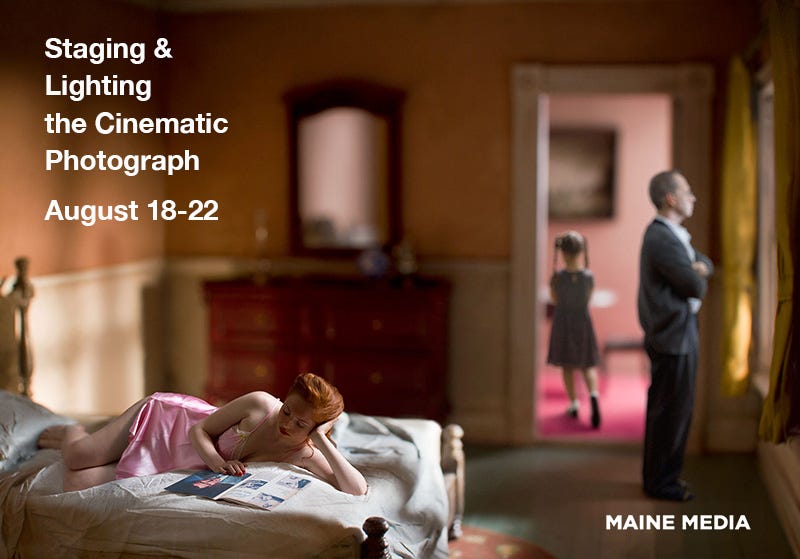I’ve been thinking lately about grief and melancholy. Well okay, I’m pretty much always thinking about grief and melancholy. Both emotions consist at least in part of the understandable feeling of sadness triggered by loss. But I think grief comes first, while melancholy eventually follows. In my experience, melancholy is easier to deal with than grief, and easier to understand as well. I have a lifelong relationship with melancholy. The deep but often gentle, bittersweet sadness of that emotion has clung to me for as long as I can remember. Even when I am feeling happy and in good humor (it does happen!), melancholy has lurked silently just beneath the surface. Best case, I believe, my melancholy eventually emerges transformed into some form of dark beauty in my art. I wrote about this in a previous newsletter.
The mechanism of grief, however, is a mystery whose workings I am still trying to fathom.
“Grief, when it comes, is nothing like we expect it to be."
Joan Didion
Back in 2016, I created a photography project, Once Upon a Time in Kazimierz, with grief as the main theme. In this photographic novella, a couple struggles to cope with the loss of a child. At the time, I thought maybe I knew something about grief. Well.
A few years later, on a quiet June evening in 2019, tragedy personally walloped me smack in the face, when to my complete and utter shock, Ewa, my wife of seventeen years, took her own life. (Many of you readers know this.) Suddenly, grief was paying a most intimate, urgent visit and it flattened me. That I would be immediately overwhelmed and incapacitated for that initial portion of time was, to say the least, unsurprising. And I remain grateful for the loving family and friends who swooped in to support me during that awful period. What has continued to surprise me, though, is the way grief has subsequently behaved in such bewildering and unpredictable ways— hiding and then reappearing, stealthily disappearing again, and then suddenly bulldozing my defenses in the most unpredictable and chameleon-like guises.
“[Grief] spills into every crevice of your memory, identity, and body. You think you’re mourning one person, but suddenly you’re feeling all of it.”
Sumer Lynch
Fast forward two years into my recovery from the tragedy. I felt that I was in pretty good shape, grief-wise and life-wise. I had moved into a new apartment, rented a new studio, begun a new photo project, and embarked on a new relationship. Grief however, apparently had other ideas. Yes, from time to time I would have the not unexpected brief spells of sudden, acute sadness over the loss, accompanied by a spate tears, springing from this memory or that. But more and more often, and more seriously, I began to experience days-long spells of deep depression that seemed to have no identifiable source. My photography project was not going nearly as well as I had hoped, and for the first time in my career I began to experience serious creative block, something I had for years taught artists how to overcome. And (uncharacteristically I hope), I behaved in ways that actively sabotaged my new relationship.
And finally, as if all this was not enough, in the fall of 2023 I suffered a full-blown mental health crisis that included a three-month long period of hypomania* followed by a much longer episode of clinical depression, a week-long hospital stay, and a brand new diagnosis of Bipolar II Disorder. I wrote about this in detail in a previous post. My mental health team believes this crisis was primarily a grief-reaction to my wife’s suicide (along with the usual genetic and environmental factors)—the supposition being that the process of consciously grieving such a loss was up until then too overwhelming for me.
The past year has remained challenging, as ripples of my depression, while less acute, have stubbornly persisted. Still, at this point in my recovery, I am optimistic. While I still have too many bad days for my liking, I’m about to embark on a promising new treatment plan for my lingering depression, my photo project is going better, and most thankfully my relationship has survived intact. I feel hopeful that the once heavy, suffocating symptoms of my grief, in all their strange psychic forms, are perhaps beginning to ripen into that bittersweet feeling we call melancholy. That’s an emotion I know what to do with.
*Hypomania: A distinct period of persistently elevated, expansive, or irritable mood, lasting throughout at least 4 days, that is clearly different from the usual nondepressed mood. — Diagnostic and Statistical Manual of Mental Disorders
IN-PERSON WORKSHOPS AT MAINE MEDIA IN AUGUST
IN BEAUTIFUL ROCKPORT, MAINE
Two workshops back-to-back—come for one or both!
Join us August 18–22 for this hands-on in person workshop, “Staging & Lighting the Cinematic Photograph”. We will work both in the studio and on location, individually and in teams, to explore how to shape the light and stage models to create stories with real emotional resonance. I guarantee we will have a blast! Click here for more info and to register.
Join us from August 25-29 for “The Art & Craft of Photoshop Post-Production” and learn to take creative control in Photoshop. We'll cover everything from complex masking and compositing to retouching and color-grading, and we’ll look at Photoshop’s newest AI tools as well. Click here for more info and to register.








I understand what you’re saying, Richard. I recently lost my sister. She was younger than me but led a very different and difficult life. But her childhood was the closest to mine. I am the last surviving member of my family of origin. And all their losses were experienced in very different ways. Grief surfaces and retreats repeatedly. It’s interesting you talk about melancholy. I recently experienced it. I was surprised as I can’t remember the last time I felt that way.
Hi Richard .. thank you for your writing your words and your work are both beautiful ..I too lost a loved one to suicide not so long ago..💔🌈❤️